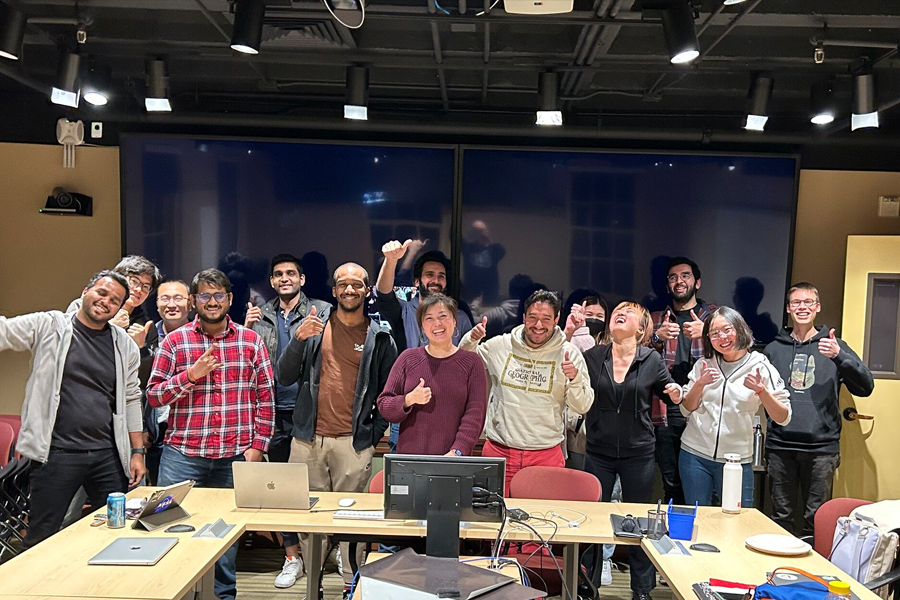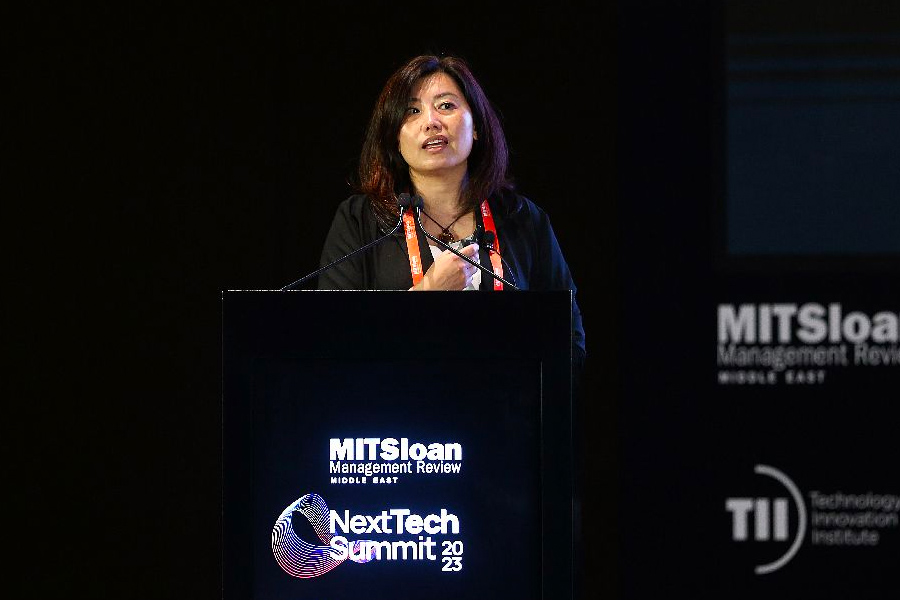
Faculty Spotlight: Lake Dai
Bridging the Gap Between Technical and Practical Applications of AI
By Jess Ignasky
It’s no coincidence that CMUiii faculty, Lake Dai, has “AI” in her own name.
This past summer alone, Dai was in attendance at three separate generative AI conferences both as a panel moderator and keynote speaker.
AI sprang to the headlines late last year with the public preview of ChatGPT, an AI chatbot created by OpenAI. Since ChatGPT’s formal release to the public in March of 2023, the topic of generative AI has dominated conversations about the risks, rewards, and qualms of artificial intelligence’s capabilities.
Dai is no stranger to AI, and her storied career has positioned her as an important voice in the conversation about using AI’s capabilities for good.
She began her career in product and engineering, joining the product team at Alibaba as one of the company’s first 100 employees and head of the product team. Dai and her team built the Alibaba B2B marketplace, a $1.2B business, from the ground up. After Alibaba, Dai joined Yahoo! in 2002, growing the organization’s market share from 7% to 23% in a quarter.
After her time in operation roles, Dai decided to become a startup mentor and investor, hoping to pass on her knowledge to young startups.
“I started doing angel investment 10 years ago because before I joined Carnegie Mellon University, I was also a builder. I worked at Alibaba, Yahoo, and Apple in the early stages, so I had the opportunity to see those companies grow from smaller companies to companies on a global scale, particularly at Alibaba where there are now over a hundred thousand employees.”
Now in her seventh year as an adjunct professor at Carnegie Mellon University’s Integrated Innovation Institute, Dai hopes to impart some of her knowledge to students as well.
In her course, “Applied AI,” Dai shares AI’s applications across different industries and its use cases. Students discuss challenges and opportunities for AI and both technological and business aspects of AI models.
“I think the challenge a lot of engineering students are facing is that you may learn how to build a model and how to tune a model, but what is that model built for, and how are different industries using it today? I think it’s really important to connect the technical knowledge with the practical use cases in the industry.”

After students establish a baseline understanding of the technology behind AI, Dai invites guest speakers from different industry sectors to share how AI is impacting their work.
“This past year, we had the CTO of P&G, and in the past, we’ve had senior engineering executives from companies like Google, Nvidia, Amazon, Meta, Netflix, Anthem, and Square.”
“We have done quite a bit of a split between large companies and startups. I hope students get the sense that it’s not only how Google, Amazon, and Microsoft are using AI, but also how startups are using it.”
“It’s important for students to learn about how models are actually built. If you were going to build a machine, I think it’s a good idea to go to the factory and see what the machine is actually going to do, how important it is, and what issues it may have. Then when you design and work on this machine, you are more targeted and know what you are building it for.”
Use cases of AI not only play an important role in Dai’s classes, but they have also informed her talks at conferences this past year about generative AI.
At VentureBeat Transform AI, Dai moderated a fireside chat with Debanjan Saha, CEO of DataRobot, Douglas Pestana and Jeremiah Kayiza, AI experts from Baptist Health South Florida, and Matt Carbonara, Managing Director of Citi Ventures.
During these chats, Dai discussed how AI plays a role in healthcare and the finance industries, and the challenges and opportunities it can present in these areas.
“Imagine you are a healthcare company. Before considering fitting data into an AI model, you have to create a very clear strategy. How do you provide data privacy for patients, how do you manage data integrity?”
Dai also shared an example of how a healthcare company looking to use AI for patient treatment would need to meet certain requirements for accuracy in the model.
“You have an AI companion that is talking to a patient and creating a diagnosis, but what if it gets it wrong? For emergency room triage and critical diagnosis, the accuracy needs to be really high. In order to train high accuracy models, we have to understand what is considered safe criteria to release such a model.”
More recently, Dai delivered the keynote at MIT Sloan Management Review - Middle East’s conference in Dubai titled, “Co-parenting AI.”
Dai discussed real AI use cases and their potential impact on core business strategies across various industries; the associated risks, possible solutions, and how humans might collaborate with AI in the future.

Dai suggests shifting our focus from human vs. AI to co-piloting or co-parenting AI.
“AI is still in its infancy. As humans, we need to guide this ‘baby,’ teaching it the right actions, instilling a moral compass, feeding it the correct data, and placing it in the right environment before it matures into a ‘teen’ or ‘adult’ that might become unresponsive to our guidance.”
